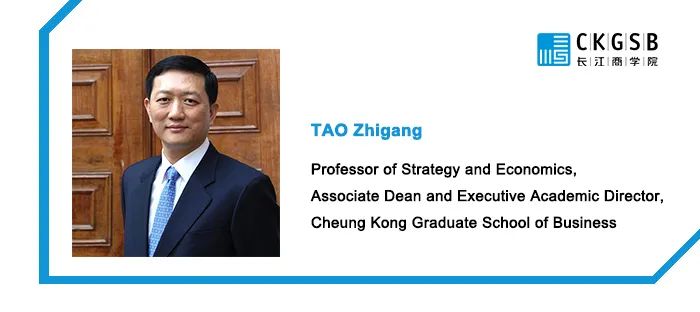Accounting for nearly a third of the world’s population and almost 30 percent of global GDP, the Regional Comprehensive Economic Partnership (RCEP), ratified on January 1st, 2022,drew its 15 signatories from Asia Pacific into the world’s largest trading bloc.Initially conceived by ASEAN as a means of bringing its pre-existing regional trade partners together under a comprehensive economic agreement, RCEP is expected to add US$200 billion to global GDP annually by 2030.
With the ratification of theRCEP, we askedCKGSB Professor of Strategy and Economics, Tao Zhigang, who focuses on international economics, protectionism and regional specialization, tocomment on the likely impact of this agreement on the region’s economy and its practical implications for businesses operating in the region. While questions remain about how all 15 signatories can ensure equitable influence within RCEP, the opportunities this agreement represents for businesses and Asia Pacific’s regional economy are clear.

1. How do you think RCEP will reshape the value chain in the Asia-Pacific region?China, Japan and South Korea will have more collaboration in production under RCEP. This is because among the three countries there was no bilateral agreement between Japan and China and no bilateral agreement between Japan and South Korea.Through RCEP, these three countries will have a more extensive trade agreement, under which they could organize their productionwherever the costs are the lowest and service to the local economies theeasiest. Given the size of the Chinese economy,RCEP will give member stateseasier access to the Chinese market, which will help the wholeAsian region grow faster.2. How do you think Chinese firms will leverage RCEP to seek further economic growth,especially with the slowdown of the Chinese economy?There will be at least two major ways through which RCEP can benefit the Chinese economy or Chinese firms. Chinese firms will become more Asian by relocating some of their production to RCEP countries, such as Indonesia or Vietnam. This could allow Chinese firms to become more cost competitive. The Chinese economy will benefit if their firms become more competitive.The second channel through which RCEP can boost the Chinese economy is that other RCEP countries will be able to serve the Chinese consumers by offering products at lower prices. Chinese consumers will gain more consumption with less spending and keep the remaining money as savings and investment.3. What do you think China will do to make sure that RCEP is sustainable? With China’s manufacturing moving off-shore and the economy transitioning to a high-tech, service-based economy, do you think we will see discontent within the manufacturing hubs in China, like the discontent we have seen in the US rustbelt?Chinese firms will generally benefit from globalization, just like how American firms have benefited. Chinese consumers will also benefit from cheaper goods. However, there could be losers throughout this process, such as low-skilled workers who might become unemployed due to factories being moved to other parts of Asia. What is critical to the sustainability of any trade agreement is to ensure redistribution programs are in place to help those who get displaced in the process. It could be training programs or better social welfare. This is why the Chinese government is emphasizing common prosperity. I am confident China will navigate through this new round of globalization.4. What are some of the challenges you see for China in RCEP?My own research has shown an increase in negative reporting of China in various parts of Asia, especially after COVID-19. This meansthat China needs to do more to make sure the rest of Asia benefits from the rise of China. This could be done by opening the Chinese market more widely (so RCEP countries and Chinese consumers can both benefit) or by having Chinese firms invest in various RCEP countries and help local economies to move up the value chains. For example, China\'s strategy of teaching Indonesia how to make COVID-19 vaccines is a step in the right direction. It is one thing to give away vaccines and it is so much better if you teach others how to make them.

编辑:葛格
(本文转载自 ,如有侵权请电话联系13810995524)
* 文章为作者独立观点,不代表MBAChina立场。采编部邮箱:news@mbachina.com,欢迎交流与合作。

















